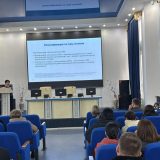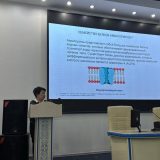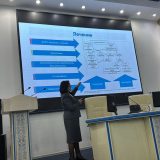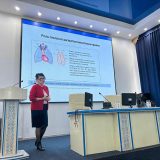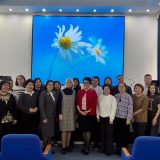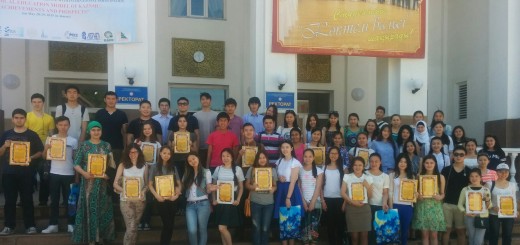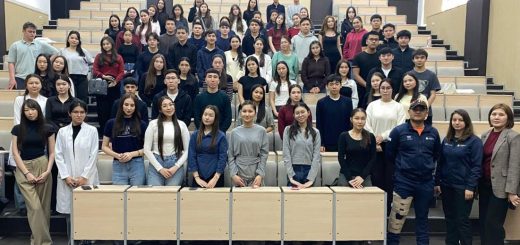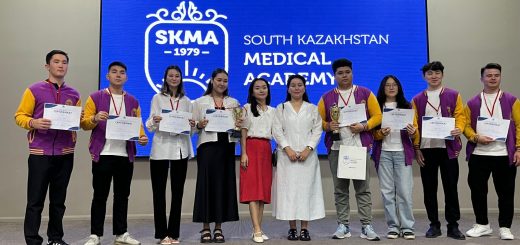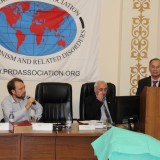In Focus – Autoimmune Orphan Diseases
The Department of Nervous diseases of Asfendiyarov Kazakh National Medical University continues its series of educational events for practical healthcare professionals, dedicated to the 95th anniversary of S.D. Asfendiyarov University and the 90th anniversary of Professor S.K. Kaishybayev’s memory.
On October 3, an educational seminar was held in Ust-Kamenogorsk as part of the implementation of the cascade training method for healthcare professionals, in accordance with the Roadmap for Improving Neurological Care for the Adult Population of the Republic of Kazakhstan for 2025–2027 (No. 03324, dated January 23, 2025). The event was organized with the support of the Public Association “Association of Neurologists of the Republic of Kazakhstan,” the Institute of Continuous Professional Development of Asfendiyarov KazNMU, and the Health Department of East Kazakhstan Region. The event coordinator was the chief freelance neurologist of the EKR Health Department, Ainabekova E.M.
The seminar was held in the assembly hall of the Diagnostic Center and was dedicated to current issues in the diagnosis, treatment, and dynamic follow-up of Myasthenia Gravis, clinical features of myasthenia in children, diseases of the neuromyelitis optica spectrum, and the use of anticomplement therapy in these conditions. The seminar brought together adult and pediatric neurologists, as well as general practitioners from various medical institutions of the East Kazakhstan Region.
Experts delivered lectures based on up-to-date scientific data and recent clinical research findings. Among the invited lecturers were Professors of the Department of Nervous diseases of Asfendiyarov Kazakh National Medical University — G.A. Mukhambetova, R.B. Nurzhanova, and the Head of the Department, S.T. Turuspekova.
The relevance of such educational seminars is determined by the high importance of neurological manifestations of autoimmune diseases, which represent one of the most complex areas of medicine. Diagnosis of these disorders is often difficult due to the broad range of symptoms that mimic other conditions. Modern diagnostic methods — such as laboratory testing, neuroimaging, and electroneuromyography — can reveal only part of the manifestations, which often leads to misdiagnosis and delayed treatment, increasing the risk of disability. The need for in-depth study of these diseases and improvement of diagnostic accuracy is confirmed by numerous cases of incorrect diagnoses.
The organizers expressed their gratitude to all participants and experts for the opportunity to discuss pressing issues of orphan autoimmune progressive diseases, for raising awareness among the medical community, and for their commitment to professional development.



